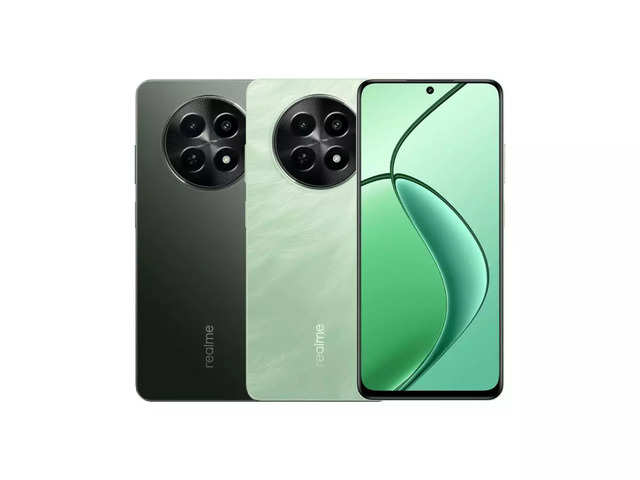
Listen to what Rubeena Singh, Neena Dasgupta, Priti Murthy and Roopa Badrinath had to say about the changes the industry can make to become more inclusive
A discussion on what more the industry needs to do to become more gender-equal
Mar 9, 2021, 10:00 IST
ad-agencies
Women in Leadership: Past, Present and Future
Mar 9, 2021, 10:00 IST
A discussion on what more the industry needs to do to become more gender-equal
- On
International Women's Day , we shone the spotlight on women in leadership in the advertising, marketing and media industry. We spoke about their learnings and asked them for their advice, towards making a more gender-equal industry. - Here are a few key takeaways from the panel discussion that comprised
Rubeena Singh , CEO,iProspect India,Neena Dasgupta , CEO and Director,Zirca Digital Solutions,Priti Murthy , CEO,OMD India andRoopa Badrinath , Chief Talent Officer,Wunderman Thompson , South Asia.
To understand how things are in the ad world and what more needs to change, we spoke to a power-packed panel comprising Rubeena Singh, CEO, iProspect India, Neena Dasgupta, CEO and Director, Zirca Digital Solutions, Priti Murthy, CEO, OMD India and Roopa Badrinath, Chief Talent Officer, Wunderman Thompson, South Asia.
The conversation threw up some really interesting insights and solutions to the problems we have been trying to solve, from leaders who have been a part of the industry’s evolution.
The Past
Speaking about how things were in the industry when she just started out, Dasgupta said, “There was a time when I had to work very hard to make myself heard. A male voice would be considered 'information' and a female voice would be considered as 'emotions.' From there, we have come a long way. Ad and marketing today has many senior women leaders. There’s a massive change I have seen and only for the better.”
Singh added, “I started my career withe Sales where there would always be snide remarks like, ‘Oh girls get easy appointment with clients because they aren’t rude to you.’ It seemed like a bias that you are getting the job done because you are a woman and not because of your own merit and hardwork. But today there is so much awareness and sensitization that people are very careful about how and what they say.”
Sharing how she was lucky to have started working with a lot of bosses who were women, Murthy said, “I have had a wonderful journey in this industry. I did see some bumps but it wasn’t as harsh because I had a lot of women leaders who helped me on this journey. And the beautiful part is, there are more of them now.”
Speaking about her journey, Badrinath added, “Many years ago, I had almost got a job with a leading FMCG player, till the interviewer asked me about my plans for settling down. I was naive and frankly shared my thoughts with him, only to be told later that they will get back to me. It’s been years and I am still waiting for them to get back. That was when I decided if I ever held a position of power, I would make sure women did not have to face these biases.”
The Present
A recent Linkedin study revealed that 1 in every 5 (22%) working women in India said their companies exhibit a ‘favourable bias’ towards men at work. In India, more than 4 in 5 working women (85%) claim to have missed out on a raise, promotion, or work offer because of their gender. More than 1 in 2 women are also looking for more professional connections and mentors who can help them advance their careers, as 65% women agree that lack of guidance through networks is a key opportunity barrier.
So how do we make women in the industry more confident about their own merits and encourage them to demand what they rightly deserve?
“Women do play small, they want their worth to be seen and identified. They are scared to share a point of view or say that they are as deserving of the role as a man is. There are a lot of people who still look at roles as being dependent on gender. Women have to be extremely conscious about not playing small,” shared Dasgupta.
Giving an interesting perspective, Badrinath said that how women think of their own worth also has to do a lot with social conditioning. “There’s a lot of confusion that takes place in people’s minds when they come to the workplace. You have a workplace that is trying to be contemporary, upbeat, talking about equality but at home, there is a completely different thing happening. There, the roles played by say a sister or parents is very different. That confusion leads to a sense of low confidence. You aren’t sure of whether what you are asking for is rightfully yours because the conditioning is saying something else to you,” she said.
The Future
Dasgupta shared that there was a need for the industry to have more mentorship programs. “We definitely need more mentorship programs but we also need the mentees to be equally serious about the programs,” she said.
Badrinath added, “As an industry, if we are going to be having say a jury for an award show, make sure you have an equal representation of men and women. Because if you have a jury with 8 men and 1 woman, you’re sending a strong signal to the younger generation that all that is happening when it comes to gender equality is just posturing. So the industry has to lead by example in small ways like this.
Watch the full conversation here:
For #InternationalWomensDay this year, @samarpitab in conversation with @iProspectIndia's @rubeenas, @ZircaDigital'… https://t.co/DZ3KykSFMh
— Advertising and Media Insider India (@admediainsider) 1615199940000INSIDER INTELLIGENCE REPORTS







